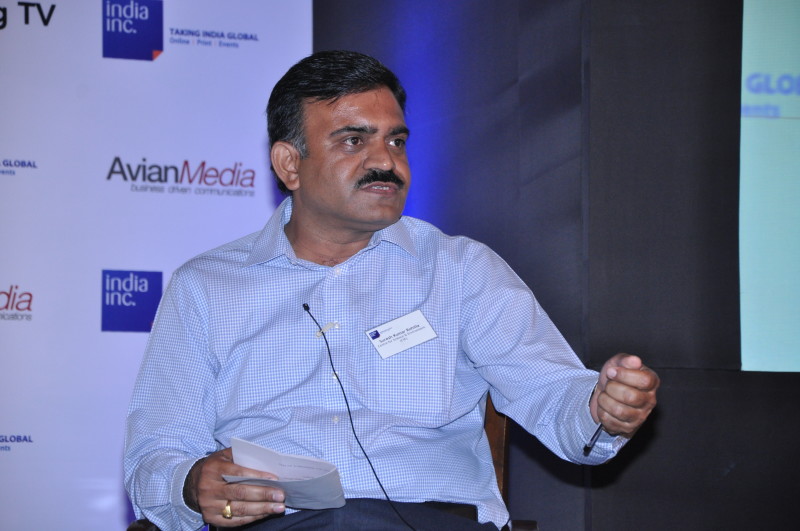Wikipedia defines water as a transparent fluid, which covers 71 percent of the Earth’s surface and is vital for all known forms of life. Wastewater, according to the online English dictionary, is any water that has been used by some human, domestic or industrial activity and, because of that, now contains waste products.

The current paradigm on water is that the more water is supplied, the more waste water is generated. This results in more costs for treatment, which in turn, is not sustainable because of the growing population – even though more than 1.2 billion people lack access to clean drinking water.
The Second India-Africa Dialogue and Media Briefing Workshop, organised by the Media for Environment, Science, Health and Agriculture (MESHA) in conjunction with Ghana’s SaTCOG, was funded by the India-based Centre of Science and Environment (CSE). Jornalists from Burkina Faso, Benin Republic, Ghana, Kenya, Nigeria, Rwanda, Senegal, Sierra Leone, South Africa, Tanzania and Uganda attended the forum.
The workshop, which was premised on Sewerage to Sanitation: Mainstreaming Septage (Faecal Waste) Management, understudied the African plan for cities’ water, which forgets the waste. The faecal waste plan is such that is dependent on the plan by the colonial administration.
According to Suresh Rohilla, CSE’s Programme Director in charge of Water Management, “80 percent of water leaves homes as sewage where the more water that is generated, the more is wasted. Cities have no clue how they will convey waste, treat it in order to have clean rivers.”
The CSE, which carried out a study on waste water management in 2015, found that the disposal system of faecal waste was based on the sewage systems built by the colonialists, without the involvement of the local people. The study discovered that “The colonial administration created systems and structures where the participation of local people in making decisions was completely eliminated while the systems also became more and more centralised.”
The water supply systems were not decentralised. They were controlled and relied on long transmission lines. More so, the transportation of water from distant locations and sewage disposal were centralised in most towns and cities. “As much as 20 to 50 per cent of water was wasted during the supply process.”
According to Indian National Urban Sanitation Policy 2008, 50 percent of the population lives in unhygienic situations where “only 102 million (equivalent to 29 percent of the urban population) are connected to septic tanks and 60 million (17 percent) use pit or vault latrines. Big cities still have 20-40 percent dependence on septic tanls and small/medium cities 80-100 percent are on septic tanks.”
Against the conventional waste water treatment systems, which are expensive in maintenance, the workshop recommended the Duckweed based Waste Water Treatment (DWWT), which have flexibility in design. “The DWWT are tolerant to inflow fluctuation and sewer networks are shorter in length and smaller in diameter,” Rohilla explained in his presentation, adding, “it uses a variety of simpler and natural treatment system with non or minimal energy. It promotes conservation of used water and nutrients.”
Of additional advantage is that the DWWT system uses no electricity or chemicals for the treatment process and semi or unskilled labour for operation and maintenance. “The reuse of water is local and safe.
While the DWWT could be used in rural and urban areas, it could also be applied in single houses, public toilets, residential areas, tourism facilities, craft villages, industrial parks as well as hospitals, markets and schools.
African governments must think of workable ways of managing waste water. This could be by adopting technologies that are known to improve water treatment processes.
“These technologies, according to CSE, “are decentralised and designed to enhance the natural aerobic and anaerobic processes” and “create conditions in which wastewater can be treated with the least use of energy or mechanical equipment.” On the whole, wastewater could be effectively recycled and reused locally at household, institutional or community level.
Patrick Appoya is of the Africa Sanitation Think Tank and an Environmentalist. Presenting his paper, “Mainstreaming Sustainable Sanitation Solutions in Africa,” he observed that the sewage systems being used today in Africa “have proven not to be able to cover the population the way we want.”
He gave an example of Ghana, which in 1990 had 11 percent of the population only with access to improved sanitation. The country recorded a four percent difference (15%) in 2015. “It means that our strategy is not working if in 25 years, there was a difference of only four percent. We are showcasing today that other workable approaches are available to achieve our public health objectives. And that option is the decentralised waste treatment. Whatever it will cost to contain our faecal matter effectively, according to the principle of improved sanitation, we must do it.”
Appoya sees one of African government’s challenge in faecal waste management as not charting their own path. “For example, countries that inherited conventional sewage treatment systems still go that way. They don’t think of how best they could create their own suitable methods. The ability to organise authentic evidence to be able to improve on the status quo is the major problem when it comes to sanitation,” he said.
While Appoya sees that very little has changed on the toilet that was invented in 1840s, he recommends the decentralised waste water management system for Africa.
“I will recommend the decentralised waste water management system. We need to also understand that the centralised system will not be able to service everybody.”
Sudhir Pillay, of South Africa’s Water Research Commission made a presentation on the “Opportunities and Challenges in Faecal System Management (FSM) while MESHA’s Secretary, Aghan Daniel presented a paper titled, “Challenges Facing Science Journalism.”
By Abdallah el-Kurebe
